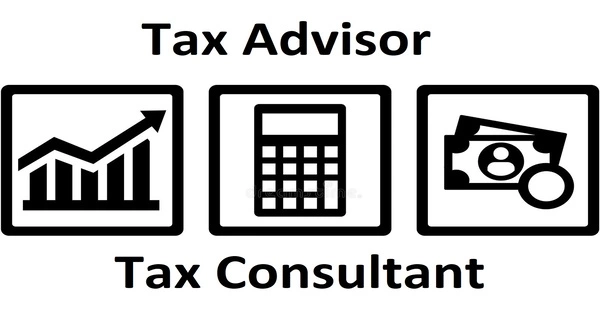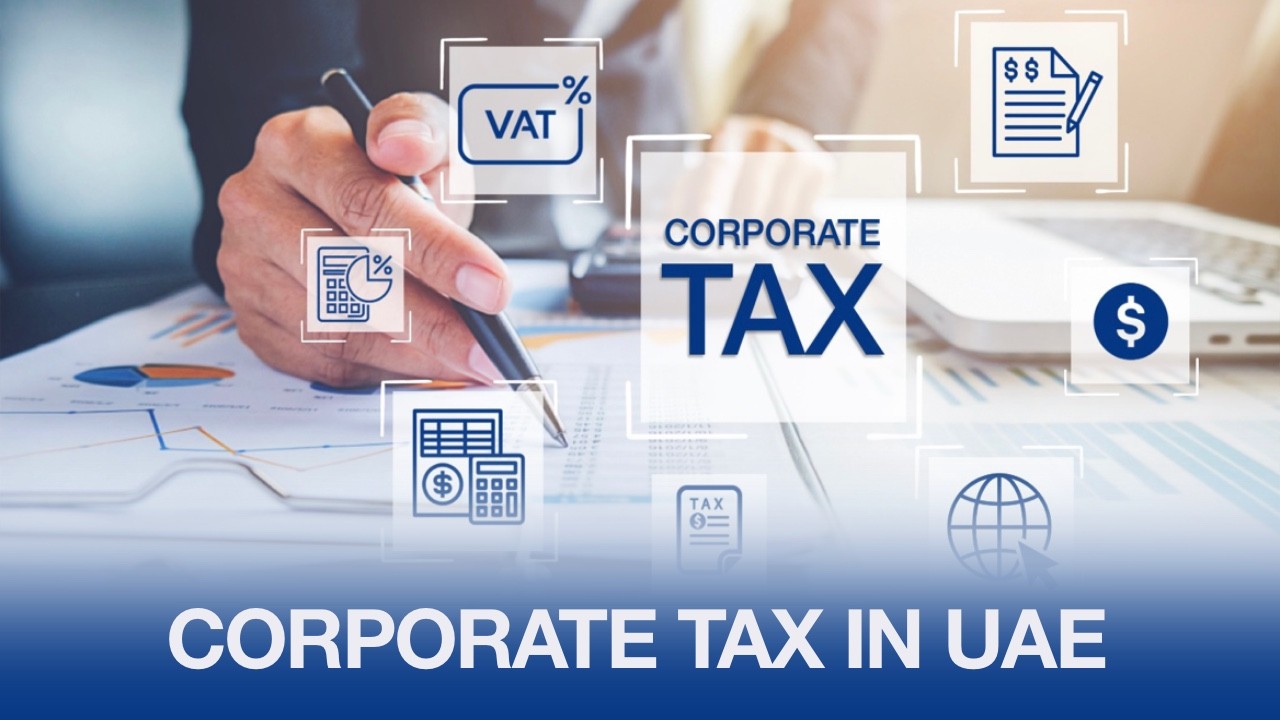How to Check if a Business is Eligible for 0% Corporate Tax
Taxes are complex, particularly with new laws. The UAE implemented a 9% corporate tax policy on June 1, 2023, one of the lowest in the world. The UAE hopes this will attract more businesses.
This is interesting: some businesses may qualify for 0% corporate tax. You read correctly—0%! There are numerous misconceptions, particularly among free zone businesses who assume they automatically qualify for this exemption.
Knowing whether your business qualifies for 0% corporate tax is vital. It saves money and assures UAE tax compliance. We’ll discuss how to assess whether your business qualifies and clarify a few misconceptions.
Understanding the UAE Corporate Tax Regime

UAE corporate tax rose to 9% on June 1, 2023. This one of the lowest corporate tax rates in the world makes the UAE more appealing for company growth.
But why such a low tax rate? Simple: attract foreign and local firms to the UAE to enhance investment and economic development. A lower tax rate lets businesses retain more money to reinvest.
However, several typical 0% corporate tax eligibility misconceptions must be addressed. Corporate tax exemption is a common misconception among free zone businesses. That is not totally true. Free zones provide several advantages, including tax incentives. However, not all enterprises qualify for the 0% tax rate.
Businesses must follow certain standards and do certain actions to qualify for the 0% corporate tax. Tax exemption isn’t guaranteed by free zone status. It’s crucial to understand and satisfy FTA requirements.
Business guidance and assistance are vital from the FTA. They provide updates, seminars, and tools to assist businesses comply with tax regulations. Businesses must keep informed and follow FTA guidelines to satisfy tax exemption criteria.
Understanding these components of the UAE’s corporate tax structure helps firms manage tax compliance and take advantage of the 0% corporate tax rate if qualified.
Misconceptions About 0% Corporate Tax

Corporate tax exemption is a common misconception among free zone enterprises. They believe they qualify for 0% tax since they live in a free zone. If not understood, this assumption is false and might cause issues.
Kress Cooper CEO Mahar Afzal raised this issue at Khaleej Times’ “Corporate Tax UAE Decoded” conference. He stated that free zones do not exempt businesses from corporate tax. The truth is more confusing. Afzal highlighted that businesses must assess their position and activity to qualify for the 0% corporate tax rate.
Criteria for 0% Corporate Tax Eligibility
Businesses in the UAE must fulfill Federal Tax Authority (FTA) requirements to get 0% corporate tax. This can be achieved by demonstrating that they are a Qualifying Free Zone Person (QFZP). There are specific laws which restrict tax exemptions to businesses doing specified activities. Businesses must understand these factors to appropriately assess eligibility for qualifying activities:

1: Substance Requirements in a Free Zone
The business must be registered in a free zone. Substance criteria include having a physical office in the free zone, employing enough people to run the business, and making critical management decisions in the UAE.
UAE free zones provide 100% foreign ownership and tax advantages to encourage international business.
A business located in a free zone does not immediately qualify for 0% corporate tax. Businesses must be in an FTA-recognized free zone and meet other requirements relating to their activity and presence in the UAE.
Further, the FTA may need office leases, employment contracts, and management activity documentation. Meeting these criteria shows that the business has a substantial presence in the free zone.
2: Qualifying Activities
Next, the business must do FTA-defined qualifying activities. To boost manufacturing, professional services, logistics, and R&D, these activities are chosen.
UAE enterprises that produce products, warehouse, distribute, transport, or innovate may qualify. Businesses must carefully analyze the FTA’s qualifying operations. Even in a free zone, non-qualifying activity might disqualify a business from 0% tax.
3: Comply with Arm’s Length Principle & Transfer Pricing
Free Zone Persons must adhere to the arm’s length principle in transactions with related parties, maintaining appropriate documentation that details pricing methods and transactions to demonstrate compliance and ensure transparency in tax reporting. Businesses must comply with the UAE’s transfer pricing regulations as specified in Articles 34 and 55 of the Federal Decree Law No. 47 of 2022, which ensure that transactions between related entities are conducted at arm’s length or fair market value to prevent tax evasion or manipulation.
4: Meets any other conditions as may be prescribed by the Minister
In addition to Article 18, to be recognized as a QFZP, businesses must meet the other relevant conditions outlined in various Ministerial and Cabinet decisions that provide further guidelines and conditions for maintaining QFZP status, especially those relating to De Minimis Requirements and Qualifying Income.
5: Compliance with Regulations
Finally, the business must follow FTA rules. The 0% corporate tax rate is maintained by complying with tax laws. Maintain thorough and accurate financial records, file all tax returns and records on schedule, and follow any extra FTA standards and laws.
Late filings may result in fines and loss of tax benefits, so accurate record-keeping is essential. Businesses may get assistance from the FTA to understand and satisfy these criteria. Businesses may keep aware and compliant by attending FTA seminars and reading their publications.
Federal Tax Authority: Guidelines and Support
The FTA is vital to helping businesses understand and comply with corporate tax laws. To explain tax exemptions and qualifying activities, the FTA periodically releases thorough guidelines and revisions. Businesses need these criteria to be current and compliant.

In addition to rules, the FTA offers business assistance services. Businesses may learn about tax rules, compliance, and best practices at seminars, workshops, and conferences. Businesses may also get tax advice from the FTA online and via customer service.
Businesses can navigate the UAE’s complicated corporate tax system and confidently apply for the 0% corporation tax rate with FTA advice and instructions.
The Role of Technology in Tax Compliance

Technology is vital to current tax compliance. It helps businesses handle tax responsibilities efficiently and properly, eliminating mistakes and fines. Technology helps organizations comply with increasingly complicated tax requirements.
Technology is crucial to tax compliance, says Dubai Investments Group Tax Manager Harsh Doshi. Many businesses are embracing innovative tax technologies, he says. These solutions simplify tax procedures, assure correct reporting, and speed up tax authority contact.
Businesses should use multiple ways to incorporate tax technology. Maintaining a tax compliance dashboard is advised. A dashboard centralizes tax-related processes and deadlines, enabling businesses to track their tax status in real-time. It also sets deadline notifications to minimize late files and fines and visualizes tax data in graphs and charts for improved analysis and decision-making.
Another important method is proper data management. Businesses should regularly analyze their tax data and combine data from several sources to preserve consistency. Tax data must be stored securely to prevent breaches. Following these guidelines and using technology can help businesses improve tax compliance, reduce risks, and comply with new requirements.
Practical Steps for Businesses to Determine Eligibility
1. Understand the Criteria and Registering with the Federal Tax Authority
Familiarize yourself with the criteria outlined in the Regulations for achieving QFZP status. Register your business with the UAE’s Federal Tax Authority (FTA) as required, providing specific information about your company and finances. This is a must for all businesses, regardless of tax status. Registering requires specific information about your company, finances, and other matters.
2. File Returns Even If Exempted
You must submit taxes even if your business qualifies for 0% corporate tax. Filing returns keeps your firm compliant with local laws and transparent with tax authorities. Maintaining correct records and submitting all relevant papers on time is crucial. Maintain accurate records of all sales, purchases, imports, exports, VAT invoices, and receipts to ensure accurate VAT return filing and demonstrate compliance with QFZP requirements.
3. Conduct a Self-Assessment of Activities
Self-assess your business operations to see whether they qualify for 0% tax. Review FTA standards to determine qualified activity. This self-assessment helps you determine whether your business needs to make changes to qualify for tax exemption and be compliant as per the requirements of Corporate Tax Laws, Cabinet Decision No. 100 of 2022 and Ministerial Decision No. 265 of 2023.
4. Seeking Private Clarification from FTA
Businesses can seek a private clarification from the Federal Tax Authority (FTA) to ensure compliance with the QFZP criteria. Under Article 59 of the Corporate Tax Law, businesses can request a private clarification from the FTA on their specific circumstances to avoid future disputes and ensure adherence to the tax laws.
5. Consult with Tax Professionals
Engage with tax advisors and consultants who have a proven track record and industry experience. Their expert knowledge can provide personalized assistance tailored to your company’s specific requirements and help you stay updated with any changes in tax laws and Free Zone regulations.
Role of Tax Advisors and Consultants
Expert tax guidance and consulting may help your business. Look for tax advisory services with a good track record, industry experience, and customer testimonials.

Consulting tax professionals has several benefits:
- Expert Knowledge: Advisors are tax law experts and can personalize assistance to your company’s requirements.
- Impact Assessment: Tax consultants can perform detailed impact assessments to understand how various tax laws and changes will affect your business operations and financial health.
- Compliance Assurance: They assist your business to register, comply with tax laws and save you from penalties and fines.
- Strategic Planning: Strategic tax preparation by experts optimizes your company structure for tax rewards.
- Ongoing Support: Support and information on tax law changes that may affect your company.
Businesses can check their eligibility for the 0% corporate tax rate and comply with UAE tax laws by following these steps and seeking expert guidance.
Staying Updated with UAE Tax Laws
Businesses must monitor tax law changes to avoid fines. Understanding tax laws helps businesses adapt to regular changes. Businesses can also take advantage of new benefits by staying up to date on tax rules.
UAE’s Federal Tax Authority (FTA) holds seminars and conferences to update businesses on tax rules. These events are great for learning from experts, asking questions, and networking with other businesses experiencing similar difficulties. Attending seminars keeps your firm up to date on changes and regulatory standards.
Many online resources help businesses remain updated on tax laws. The FTA’s website contains rules, updates, and FAQs. Subscribers to tax newsletters and publications may also get updates and professional advice.
Businesses may keep educated and proactive in tax compliance by using the help of experts, ensuring they are ready for regulatory changes.
Conclusion
Every business registered in a free zone does not automatically qualify for 0% corporate tax. To qualify for the UAE’s 0% corporate tax, businesses must demonstrate that they are a Qualifying Free Zone Person (QFZP). This requires adherence to the conditions outlined in the Corporate Tax Law, Cabinet Decision No. 100 of 2022, and Ministerial Decision No. 265 of 2023.
This approach requires being up to date on tax law changes and getting professional counsel. Businesses should regularly evaluate their status and activities to qualify for QFZP.
Avoiding fines and maximizing benefits requires tax compliance and precise appraisal. Businesses can master tax laws by remaining updated and receiving qualified advice.
Read More Blogs:




